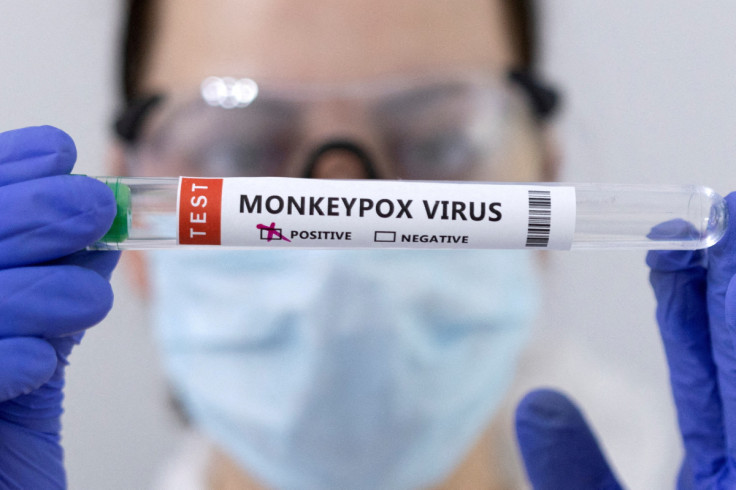California Reports Second US Death With Possible Monkeypox Infection Link

A second person in the U.S. has died after contracting monkeypox, according to health officials in Los Angeles County, California.
An investigation into the person's death is currently underway. An autopsy will begin on Friday, a Los Angeles Country spokesperson told CBS News.
In a monkeypox briefing, Dr. Rita Singhal, director of disease control in Los Angeles County, said, "We will be doing an autopsy. So it does take time for those results to come back. So it may be as soon as a few days or it may take a few weeks."
Singhal added that the county was working with federal and state health officials on the investigation and that it was unclear what role monkeypox played in the person's death.
Further details about the person's death were not provided.
To date, California has reported 4,140 monkeypox cases – the most of any other state in the country. There are over 21,500 cases of the virus reported throughout the U.S.
The first suspected monkeypox-related death was in a person from Houston, Texas, in late August and is being investigated as well. Texas health officials said last month the person who died was "severely immunocompromised."
To date, there have been 18 confirmed monkeypox deaths outside the U.S., with several deaths reported in "locations that have not historically reported monkeypox," including Belgium, Brazil, Cuba, the Central African Republic, Ecuador, Ghana, India, Nigeria, and Spain, the Centers for Disease Control and Prevention (CDC) said. Monkeypox is typically relegated to Western and Central Africa, according to the agency.
Monkeypox typically alleviates after minimal treatment but can develop into painful rashes and lesions. In a small number of instances, it has resulted in hospitalization, which the CDC suggested that people with HIV may be at a higher risk of, especially if their HIV was left untreated.
In a report published Thursday, the CDC found that 38% of 2,000 patients who had contracted monkeypox from May to July were HIV positive. The agency also noted that people who have HIV and monkeypox are more likely to be hospitalized than those who do not.
As of Aug. 26, the CDC estimated that the monkeypox outbreak in the U.S. would "grow very slowly" in the next two to four weeks due to the increasing supply of vaccinations, tests, and treatments. However, the agency added that it had "low confidence" in its prediction as some states are seeing an "accelerating" number of cases.
"Because the causes of cases slowing in U.S. and other countries are not well understood and patterns have not been uniform, we cannot predict the timing and precise trajectory of case declines in the United States," the CDC said.
© Copyright IBTimes 2024. All rights reserved.




















